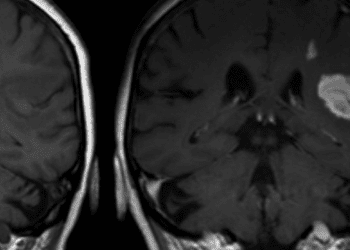Profiling levels of cognitive functioning at 6 months following traumatic brain injury
1. Many participants who sustained a traumatic brain injury experienced no cognitive dysfunction, though more severe initial injuries were associated with a greater risk of cognitive decline 6 months of follow-up.
Evidence Rating Level: 1 (Excellent)
Traumatic Brain Injuries (TBIs) are often associated with cognitive dysfunction. The typical course of cognitive recovery during the first several months following the experience of a TBI has not previously been well established. In this prospective cohort study, researchers collected data from Transforming Research and Clinical Knowledge in TBI (TRACK-TBI). Participants included 1057 individuals over age 17 who presented to Level I trauma centers in the United States within 24 hours of sustaining a head injury between March 2014 and July 2018. Participants were categorized as having sustained an msTBI (GCS score 3-12) or mTBI (GCS score 13-15). Cognitive function was assessed 6 months after the initial TBI via performance on standard neuropsychological tests. Participants were compared to control subjects who presented to the same centers after sustaining orthopedic injuries, as well as uninjured friends and family members. 6-months following the initial injury, the majority of participants demonstrated cognitive functioning within 1.5 standard deviations compared to the control group, 49.3% of the msTBI group (95% CI, 39.5%-59.2%) and 67.5% of the mTBI group (95% CI, 63.7%-71.2%) showed no evidence of impairment. Among the individuals who experienced cognitive impairments at 6 months, effects were observed across domains of memory, processing speed, and executive functioning. A limitation of this study is that only patients who presented to Level I trauma centers were included, and as such, the data may not be generalizable to other populations who sustain a TBI. Strengths of this study include the large cohort size and the prospective study design. Overall, this study demonstrates that at 6 months following a TBI, many participants experienced no cognitive dysfunction, though a higher proportion of individuals with impairment sustained more severe initial injuries.
Click to read the study in JAMA Network Open
Image: PD
©2023 2 Minute Medicine, Inc. All rights reserved. No works may be reproduced without expressed written consent from 2 Minute Medicine, Inc. Inquire about licensing here. No article should be construed as medical advice and is not intended as such by the authors or by 2 Minute Medicine, Inc.







